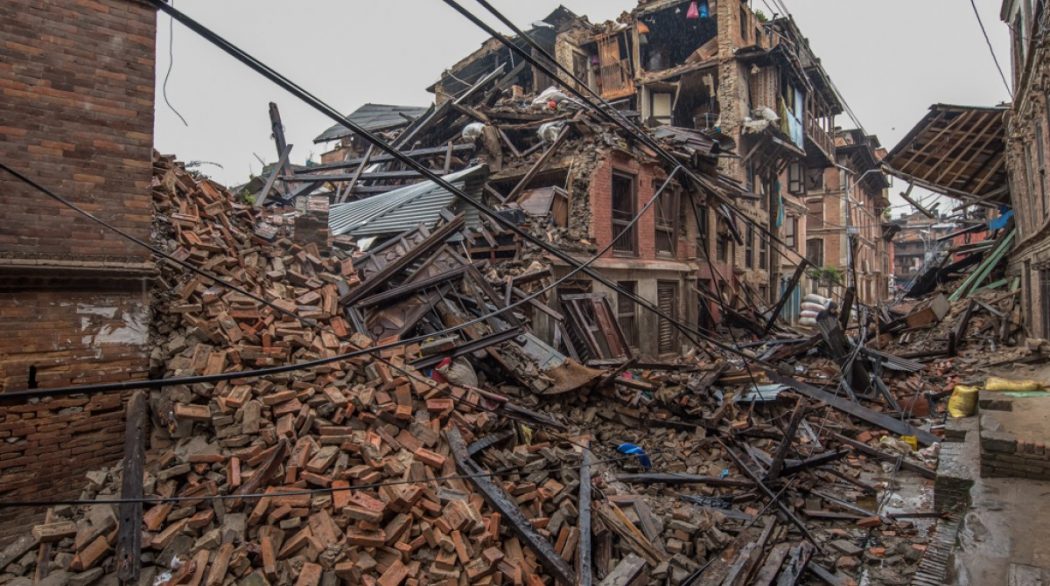In April 2015, a catastrophe struck our country Nepal.
The earthquake of magnitude 7.8 that shook Nepal took away the innocent lives of 9,000 people, injured nearly 22,000 and destroyed 600,000 structures including the unique cultural world heritage sites that the country was so proud of. This data does not even include an even higher number of animals that were dead, lost, injured or homeless but weren’t considered important enough to be counted. Thousands of those animals were crushed or buried alive in the earthquake, and some, sadly were fated to be trapped in the rubble.
Smaller aftershocks occurred during the following days which killed more people and the rain that followed stimulated landslides and destabilized even more slopes that demolished the already ruined places. It slowed the rescue process, as well as increased the possibility of more landslides during the upcoming monsoon season. It also triggered an avalanche on the world’s highest peak; Mount Everest which took the lives of 19 climbers and stranded hundreds higher up at the mountain. According to a UN report, more than one-fourth of our country’s population was affected by the quake and its aftermath.
Two years post the earthquake, many people are still living in temporary relief shelter homes braving the extremes of cold winter and harsh summer. The nation is still in turmoil and this destruction has altered the economy of Nepal which is already one of the world’s poorest countries, pushing it back by a decade or further, making thousands more vulnerable to hunger and poverty. There are several like me who still feel their hearts skipping a beat at the slightest sudden movement so I am against the idea that we humans can control nature because, even though the smartest among us have tried and succeeded to exert some control, nature always has its surprises. The earthquake has taught me that everything that’s alive is just made to die and nothing can or will ever do can stop humanity from the unavoidable fact of death or laws of nature; not even science. Earthquakes, Tsunamis, Landslides, Hurricanes, Flood and War which have disastrous consequences are enough examples to prove the point.
It’s true that pretty much all the fruits and vegetables we buy in a supermarket, the adorable new breeds of cats and dogs, and air conditioners we use at home are some of the many examples of our control over nature and if it weren’t for these acts, we would perhaps have swum in bugs and died of extreme weather. But while science can undoubtedly add a few decades to our lifespan, level mountains, put in place structures that can alter the course of rivers and even create rain, we have not yet conquered old age, sickness, death, and natural calamities. Of all the lessons I learned as a survivor of the earthquake, I think the most important one I learned is that nature is merciless. Especially more when we refuse to respect her.
Undeniably, all that we have today from swamps to skyscrapers are a result of the use of matter that nature has left abundantly for us. It’s in nature that we find anything and everything, from the truest meanings of our life and existence to scientific theories and revelations. It is through nature that we learn and on nature that we experiment. We have watched nature to create technology and art and everything that happens in the Universe is a part of Nature.
Nature is not destructible, we are. Yet we, who are living at the mercy of nature are living on this planet like we have another one to go to, forgetting to realize that we all are a part of it and that destroying nature is synonymous to destroying ourselves. There’s nothing that cannot be found in nature; from lessons of general knowledge to world-changing possibilities so I think that we should use this power of nature wisely, by working on building and using ecologically sustainable protocols to save nature and leave this world a better place than when we arrived. We save our earnings to build more wealth for the unforeseeable future. How about investing in saving nature for a better future to all?
